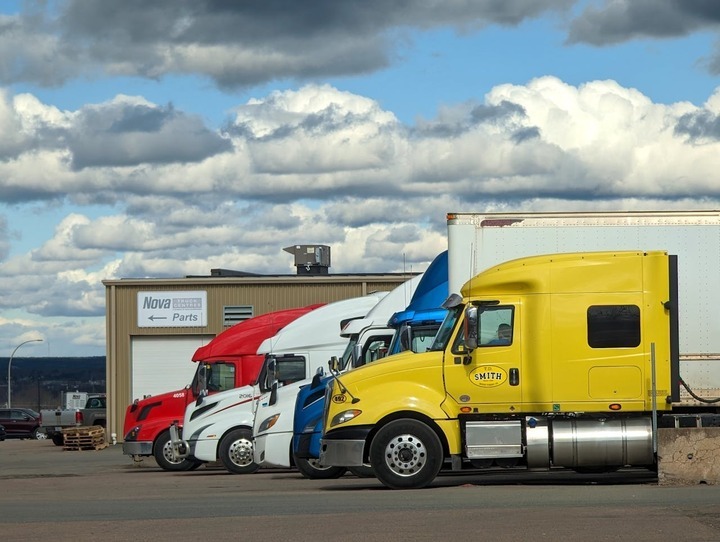
Towing Laws by State: What You Should Know Before You Park
Key Takeaways:
- State towing laws vary significantly by jurisdiction and tow type (private property, police-initiated, emergency), impacting notification, signage, fees, and release timelines, making state-specific knowledge crucial for businesses to avoid unexpected expenses and operational setbacks.
- For multi-state operations, a towing claims administrator is vital for navigating diverse legal standards, auditing invoices for compliance, verifying proper notice, and coordinating with tow yards across different jurisdictions to ensure efficient claims processing and cargo recovery.
- Businesses face common legal pitfalls in towing and storage, including improper tow authorization documentation, excessive daily storage rates, delayed reporting to authorities, refusal to release assets, and missing signage, which can lead to increased claim exposure and disputes.
- To ensure compliance and accelerate recovery across states, businesses should centralize towing incident intake, maintain updated digital records of state laws, develop a documentation matrix, standardize claims workflows with a third-party administrator, and train fleet managers on dispute escalation.
- Towing incidents often trigger intertwined general liability and cargo claims; a unified service model from a third-party claims administrator can ensure consistent data collection, streamlined claims handling, and coordinated solutions to protect a business's position in complex disputes.
When a vehicle is towed, especially in commercial contexts involving cargo or heavy equipment, understanding state-specific towing laws can make the difference between a manageable delay and a costly disruption. Each state has its own statutes regarding when, why, and how vehicles can be legally towed, along with strict requirements for documentation, notice, and billing.
For businesses managing vehicle fleets, logistics, and cargo movement, being unaware of these nuances often results in unexpected expenses, compliance risks, and operational setbacks. This is why working with a towing claims administrator who understands regional law is not just helpful—it's critical.
Why Towing Laws Vary (And Why It Matters)
Towing laws differ based on:
- Jurisdictional authority (municipal, county, or state)
- Tow types that (private property, police-initiated, emergency response)
- Notification and signage requirements
- Caps on fees or mandatory release timelines
For example:
- California requires a 10-day notice for private property tows unless specific signage is in place.
- Texas mandates that towing companies report the tow within two hours to law enforcement.
- Florida has strict rules around photographic evidence and drop fees before towing begins.
Failing to meet these regulations doesn’t just impact the towing vendor—it can stall the entire towing and storage resolution process, complicate your claims process, and delay cargo recovery.
The Role of a Towing Claims Administrator in Multi-State Operations
For businesses operating across state lines, managing towed vehicles, disputed fees, and varying legal standards internally is an unsustainable administrative burden.
That’s where a towing claims administrator adds real operational value.
Key functions include:
- Auditing invoices to ensure state compliance on fees and storage
- Verifying proper notice and documentation
- Coordinating with two yards across jurisdictions
- Aligning recovery timelines with cargo delivery schedules
- Navigating conflicting laws between cities and state regulations
Veritas brings clarity and speed to the claims process by deploying regionally informed experts who manage the full lifecycle of the tow, from incident to resolution.
Common Legal Pitfalls in Towing and Storage
Knowing the law isn’t always enough. Even when state towing laws are followed, claim exposure can rise due to poor documentation or missed deadlines.
Here are the top legal pitfalls businesses encounter:
- Improper documentation of who authorized the tow
- Overcharging on daily storage rates in violation of local caps
- Lack of timely reporting to law enforcement or carriers
- Refusal to release cargo or a vehicle despite payment
- Improper or missing signage in private property towing cases
Avoiding these issues requires more than legal knowledge—it requires systematic, real-time oversight and a partner with nationwide reach.
Best Practices for Staying Compliant Across States
To reduce liability and accelerate recovery, companies must implement internal towing protocols that anticipate state variations.
Recommended practices:
- Centralize towing incident intake through a dedicated partner or internal channel
- Keep updated digital records of state-by-state towing laws relevant to your fleet locations
- Develop a matrix of required documentation (e.g., tow notices, storage logs, photos, signed releases)
- Work with a third-party claims administrator to standardize claims workflows
- Train fleet managers on when and how to escalate towing disputes for resolution
These practices enhance your company’s ability to deliver accurate, compliant claims submissions—a key to effective freight claims management and regulatory protection.
Storage Resolution Claims Management: Don’t Let Costs Spiral
Beyond the tow itself, storage fees can become a major cost driver, especially when legal holds, salvage complications, or third-party disputes arise.
Veritas offers comprehensive storage resolution claims management, including:
- Verifying rate caps under local regulations
- Negotiating long-term storage during litigation or evidence holds
- Reviewing invoices for redundant or excessive fees
- Ensuring the correct allocation of cost across tractor, trailer, cargo, and liability lines
This integrated approach supports faster turnaround, cost reduction, and clear communication with carriers and legal stakeholders.
General Liability and Cargo Claims Are Often Intertwined
A towing incident can trigger multiple types of claim exposure:
- Cargo claims management becomes essential when goods are perishable, temperature-sensitive, or damaged in transit.
- General liability risk may be introduced if the vehicle poses a hazard, causes property damage, or injures a third party during the event.
Veritas’ siloed service model brings all these verticals together. As a third-party claims administrator, we ensure:
- Unified data collection across incident types
- Consistency in the claims handling process
- Fast, accurate information transfer between appraisal, cargo, and subrogation teams
- Detailed records and proactive updates to protect your position in disputes
One incident. Multiple exposures. One coordinated solution.
Let Veritas Simplify Your Towing Challenges
From complex towing regulations to multi-layered claims handling, Veritas provides expert guidance and full-service execution, whether you're dealing with a single disputed tow or managing a nationwide claims portfolio.
We handle the entire process, from tow yard communication to final claim resolution, reducing your cost of towing exposure through audits, negotiation, and regulatory compliance. With integrated support for cargo, liability, appraisal, and general claims, we help streamline operations, enhance customer satisfaction, and eliminate internal friction.
Partner with Veritas—your trusted towing claims administrator and third-party claims partner. Contact us today to learn how we deliver fast resolution, legal compliance, and operational control.

